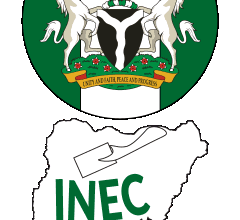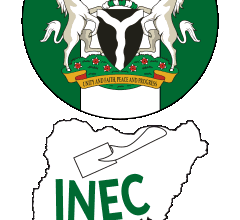
The Nigeria Customs Service (NCS) has announced that it generated ₦1,751,502,252,298.05 trillion as revenue and intercepted smuggled items worth ₦7,698,557,347.67 billion in the first quarter of 2025.
The seized items include 135,474 bags of rice valued at ₦939,309,698.00; 65,819 litres of petrol worth ₦43,336,160.81; 22 illicit drugs with a Duty Paid Value (DPV) of ₦730,748,173.00, among others.
CGC Bashir Adewale Adeniyi, the Comptroller-General of Customs, disclosed this during a press briefing on the activities of the NCS for the first quarter of 2025 held at the Service’s Corporate headquarters in Maitama, Abuja, on Monday.
His words: “This first quarter of 2025 has seen our officers working tirelessly at borders and ports across the nation. I’m proud to report that we’ve made real progress on multiple fronts – from increasing revenue collections to intercepting dangerous shipments.
“The numbers we’re releasing today show concrete results from the reforms initiated under President Bola Ahmed Tinubu’s administration and the supervision of the Honourable Minister of Finance and coordinating minister of the Economy, Mr. Olawale Edun’s leadership.”
Comptroller Adeniyi emphasised that the statistics shared represent the hard work of the NCS’ officers in stopping illegal goods at borders across the country, enabling lawful trade, and securing vital government revenue.
He acknowledged that amid the significant successes recorded, the Service also encountered challenges that have provided valuable lessons for its ongoing operations.
“I’m pleased to report the Service’s revenue collection for Q1 2025 totaled ₦1,751,502,252,298.05 (One Trillion, Seven Hundred and Fifty-One Billion, Five Hundred and Two Million, Two Hundred and Fifty-Two Thousand, Two Hundred and Ninety-Eight Naira, Five Kobo).
“Against our annual target of ₦6,580,000,000,000.00, the first quarter’s proportional benchmark stood at ₦1,645,000,000,000.00. I’m proud to announce we’ve exceeded this target by ₦106.5 billion, achieving 106.47% of our quarterly projection.”

Adeniyi noted that the “outstanding performance” represents a substantial 29.96% increase compared to the same period in 2024, where the Service collected ₦1,347,705,251,658.31.
According to him, Customs’ month-by-month analysis reveals even more encouraging details of the growth trajectory. “January’s collection of ₦647,880,245,243.67 not only surpassed its monthly target of ₦548.33 billion by 18.12%, but also showed a remarkable 65.77% year-on-year growth.
“February’s ₦540,105,439,535.18 exceeded its target by 1.3% while achieving 19.97% growth over 2024 figures. March maintained this positive trend with ₦563,516,567,519.20, delivering 2.7% above target and an 11.22% improvement over March 2024.”
The Comptroller explained that the results substantiate the Service’s effective measures to curb revenue losses while streamlining compliant trade, stressing that the 29.96% annual increase and steady monthly collections confirm the strategy is working.
He affirmed that the momentum will be maintained through rigorous enforcement and strengthened partnerships.
On anti-smuggling activities, Comptroller Adeniyi stated that the NCS maintained robust operations during the first quarter of 2025, recording 298 seizures with a total Duty Paid Value (DPV) of ₦7,698,557,347.67.
The figure represents a significant 78.41% increase compared to the ₦4,315,162,568.35 recorded in the first quarter of 2024, demonstrating heightened operational effectiveness.
He, however, revealed that when compared to Q1 2024’s ₦9,587,256,998.05, the Service observed a 19.70% reduction in DPV, attributing it to improved compliance through sustained stakeholder engagement and the deterrent effect of its enforcement activities.

“Rice remained the most prevalent seized commodity, with 159 cases involving 135,474 bags valued at ₦939,309,698.00. Petroleum products followed with 61 seizures totaling 65,819 liters (₦43,336,160.81 DPV). Of particular note were 22 narcotics interceptions valued at ₦730,748,173.00, reflecting our intensified focus on combating drug trafficking.
“The Service also recorded three high-value wildlife product seizures with a remarkable ₦5,653,522,600.00 DPV, underscoring both the lucrative nature of this illegal trade and our commitment to environmental protection under international conventions,” the Customs boss said.
Other notable seizures are textile fabrics (13 cases, ₦134,219,330.00 DPV), retreaded tires (5 cases, ₦104,599,000.00 DPV), and pharmaceuticals (1 case, ₦17,188,000.00 DPV).
Comptroller Adeniyi mentioned that the comprehensive results demonstrate the Service’s vigilance across all categories of prohibited and restricted goods.
He pointed out that the seizure trends highlight several strategic priorities, including continued emphasis on intercepting high-volume items like rice and petroleum products through enhanced border surveillance as well as specialised operations targeting high-value wildlife trafficking, building on existing collaborations with UNODC and other international partners.
Others are sustained focus on dangerous narcotics and pharmaceutical smuggling; and implementation of advanced non-intrusive inspection technology to improve detection rates.
“From rice to wildlife, these seizures show our targeted approach. While these results indicate progress in curbing smuggling activities, the Service recognizes the evolving nature of illicit trade. We remain committed to refining our enforcement strategies through intelligence-led operations, technological advancement, and strengthened interagency cooperation to protect national revenue and security.”
Speaking further, Adeniyi said that trade facilitation remains a core focus of Customs’ operations, as the Service continues striving to balance its revenue collection and enforcement responsibilities with the need to promote legitimate trade.
He disclosed that the Service also processed a total of 327,928 Single Goods Declarations (SGDs) for imports in the first quarter of 2025, handling goods with a total mass of 4,910,640,283.33 kilograms and a Cost, Insurance, and Freight (CIF) value of ₦14,807,960,201,235.00.
This, he said, represents a 5.28% increase in the number of import transactions compared to the 311,492 SGDs processed in Q1 2024, reflecting growing confidence in Customs’ trade facilitation measures.
The Comptroller explained that the significant 40.14% increase in the mass of imports processed (from 3,504,173,117.33 kg in Q1 2024) demonstrates robust growth in import volumes, while the 26.72% increase in CIF value (from ₦11,685,677,810,129.00 in Q1 2024) indicates a shift towards higher-value goods.
He continued: “In Q1 2025, the Service processed 8,153 export shipments (SGDs), representing a 6.4% decrease from Q4 2024 (8,710 SGDs) and a 24.4% decline from Q1 2024 (10,786 SGDs). Despite fewer transactions, export mass reached 5.03 billion kilograms – a 10% reduction from Q4 2024’s 5.58 billion kg but a remarkable 348% increase from Q1 2024’s 1.12 billion kg.
“The CIF value stood at ₦21.51 trillion, showing a 19% increase from Q4 2024’s ₦18.07 trillion while remaining stable compared to Q1 2024’s ₦21.58 trillion. This data clearly suggestive of Nigeria’s accelerating shift toward bulk commodity exports, with significantly larger shipments being processed through fewer transactions, while maintaining consistent total export value – reflecting both changing trade patterns and improved processing efficiency in our export systems.
“The total trade value handled by the Service in Q1 2025 amounted to ₦36,317,925,576,290.00, demonstrating Nigeria’s substantial participation in international trade despite global economic challenges. This performance reflects our ongoing commitment to implementing trade facilitation measures that enhance Nigeria’s competitiveness in the global market.”
With reference to key initiatives and achievements in the first quarter of 2025, the Customs leader stated that the Service achieved several significant milestones in its modernisation and institutional development agenda.
The achievements, he said, align with the Service’s strategic objectives and contribute to its overall mandate.
Comptroller Adeniyi highlighted the initiatives and achievements, including B’Odogwu Platform Expansion, Authorised Economic Operators (AEO) Programme, Corporate Social Responsibility (CSR) Programme and Support for Government Food Security Initiatives.
As regards B’Odogwu Platform Expansion, Adeniyi pointed out that the Service continued the roll-out of its indigenously developed customs clearance platform, B’Odogwu, expanding its operations to additional Customs formations across the country. He added that the expansion has enhanced operational efficiency and improved service delivery to its stakeholders.
In reference to AEO Programme, he recounted that on February 14, 2025, the NCS officially launched the Programme, a World Customs Organisation-endorsed initiative that recognises businesses with strong compliance records and security standards. The Comptroller equally stressed that the programme provides benefits such as expedited clearance, reduced inspections, and enhanced predictability in customs procedures for qualifying operators.
However, the Comptroller said that the quarter witnessed the official launch of the Service’s comprehensive CSR Programme, tagged “Customs Cares” on March 20, 2025, at Government Secondary School, Wuse Zone 3, Abuja, directly supporting Presidential priorities and UN Sustainable Development Goals.
He pointed out the pillars of the programme, including education, health, environment, food security, social investment, and creative economy, emphasising that they were activated with 2,000 students receiving 10,000 notebooks, 2,000 school bags and 4,000 pens, while the school benefited from CCTV security systems and solar-powered lighting.
“A concurrent medical outreach served 1,000 community members with basic healthcare and anti-malaria nets, demonstrating immediate impact. The historic launch was attended by the Honourable Ministers of Finance, Education, and Youth Development, alongside national and international development partners, marking the NCS’s commitment to nationwide social investment.
“With activities now expanding across all six geopolitical zones, Customs Cares represents a structured, scalable approach to community development—transforming corporate responsibility into tangible improvements in education infrastructure, healthcare access, and environmental sustainability,” he remarked.
Regarding the Support for Government Food Security Initiatives, Adeniyi disclosed that in line with the Federal Government (FG’s) efforts to address food security challenges, the Service implemented exemptions on imports of essential food items like maize, rice and sorghum.
He explained that the NCS’ duty exemptions on food imports contributed to recent food price reductions, with effects seen both immediately and over time.
The Comptroller affirmed that the Q1 2025 waivers on maize (₦45.3 billion FOB value), rice (₦751.6 million), and sorghum (₦2.3 billion) also contributed to lowering prices by 12-18% this year.
He also clarified that the larger exemptions from 2024 on rice (₦45.9 billion FOB) and wheat (₦2.8 billion) are now showing their full effect after taking time to work through the supply chain.
“This combination of current and past exemptions helps explain the steady improvement in food affordability. The 2024 measures initially faced delays in reaching markets but eventually increased supplies, while the 2025 waivers provided additional support.
“Together, these policies have helped stabilize prices by improving availability at different times, showing how customs adjustments can influence food costs both in the short term and over longer periods. The NBS price data reflects this pattern, where the benefits of duty relief emerge gradually but add up to make food more affordable.
“Results speak louder than plans; faster clearances through B’Odogwu, trusted traders in the AEO program, and measurable food price relief from our exemptions. We’ll keep scaling what works.”
Comptroller Adeniyi further said that amid the feats recorded, the Service encountered several challenges during the quarter that impacted its operations and performance.
He pointed out the exchange rate volatility, which continued to affect trade patterns and customs valuation.
“During Q1 2025, we recorded 62 changes in the exchange rate, ranging from a minimum of ₦1,477.72 to a maximum of ₦1,569.53 per USD, with an average rate of ₦1,521.59. This volatility, though slightly moderated compared to the previous quarter (Q4 2024) which saw rates as high as ₦1,688.28, continues to create uncertainty for traders and affects the predictability of import costs.
“We have been working closely with the Central Bank of Nigeria and the Federal Ministry of Finance to implement measures aimed at stabilizing the exchange rate for import declarations.
“Another significant challenge was the implementation and subsequent suspension of the Financial Customs Service Operation (FCSO), also known as the four percent FOB. This development created temporary operational adjustments for both the Service and our stakeholders,” the Comptroller said.
He added: “In March, we also faced uncertainty regarding the 14% Reciprocal tariff imposed on Nigerian exports by the United States of America. This development has potential implications for our export trade and requires strategic diplomatic and policy responses.
“Non-compliance, particularly in the form of smuggling, remains a persistent challenge despite our enhanced enforcement efforts. We continue to adapt our strategies to combat increasingly sophisticated smuggling networks, leveraging technology and intelligence-led operations to tackle this threat to our economy and security.”
The Customs leader revealed that the Service’s strategic focus for the remainder of year 2025 will be on two key areas, including Continuous Modernisation and Social Delivery Enhancement.
On Continuous Modernisation, Adeniyi mentioned that the NCS will accelerate the aggressive modernisation of Service processes and procedures through the launch of innovative solutions designed to enhance stakeholder experience. This, he said, includes further expansion of the B’Odogwu platform, implementation of advanced risk management systems, and integration of emerging technologies into its operations.
In relation to Service Delivery Enhancement, he reiterated that Customs remain committed to delivering quality services to its stakeholders, with emphasis on efficiency, transparency, and professionalism. Adeniyi maintained that the commitment will guide the Service’s human resource development initiatives, procedural reforms, and stakeholder engagement strategies.
Comptroller Adeniyi explained that the strategic priorities align with the Service’s long-term vision of becoming a fully modernised customs administration that facilitates legitimate trade while effectively securing the nation’s borders and optimising revenue collection for national development.
He reaffirmed the activities of the NCS in the first quarter of 2025 saying: “We’ve collected ₦1.75 trillion despite economic headwinds, intercepted ₦7.7 billion worth of smuggled goods, and rolled out practical solutions like the B’Odogwu platform. The numbers show we’re delivering.”
Adeniyi expressed gratitude to the officers and men of the NCS for their dedication, professionalism, and hard work, stressing that their commitment continues to drive the Service’s achievements and reinforces its position as a critical institution in Nigeria’s economic and security architecture.
He acknowledged the support of the FG, particularly President Bola Ahmed Tinubu, and the Minister of Finance and Coordinating Minister of the Economy, Mr. Olawale Edun, for their guidance and enabling environment that have facilitated the Service’s operations.
The Comptroller also thanked Customs’ stakeholders, trading community, partner government agencies, and international partners for their cooperation and constructive engagement, assuring that the NCS remains committed to fostering the relationships as they work together to advance Nigeria’s trade interests and economic development.
He further thanked the media for their continued support in communicating the Service’s activities to the public.
“Your role in promoting understanding of Customs operations is invaluable, and we look forward to your continued partnership,” he added.








su kaçağı tespit servisi Sultanbeyli su kaçağı tespiti: Sultanbeyli’deki su kaçaklarını teknolojik cihazlarla tespit ediyoruz. http://europesamachar.com/?p=19133